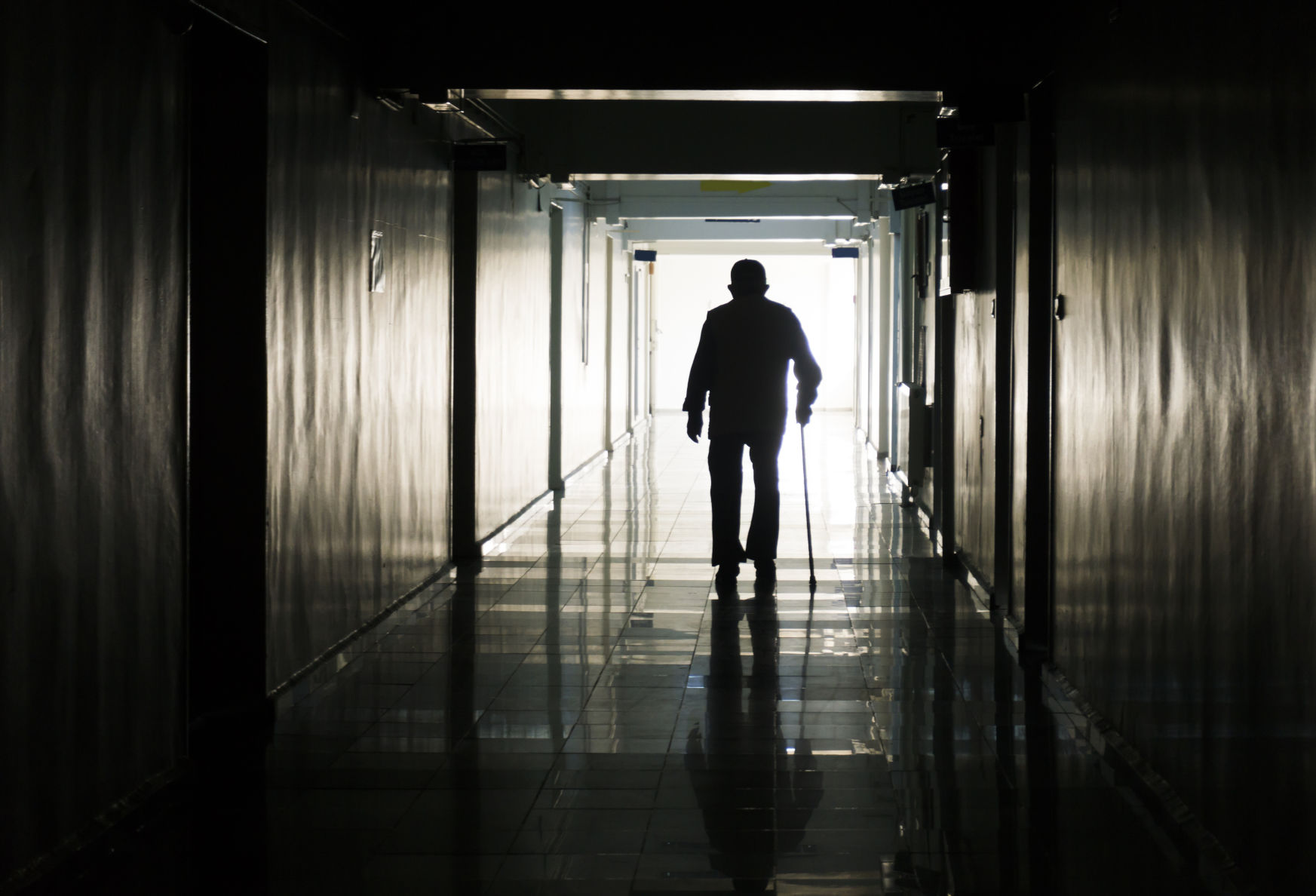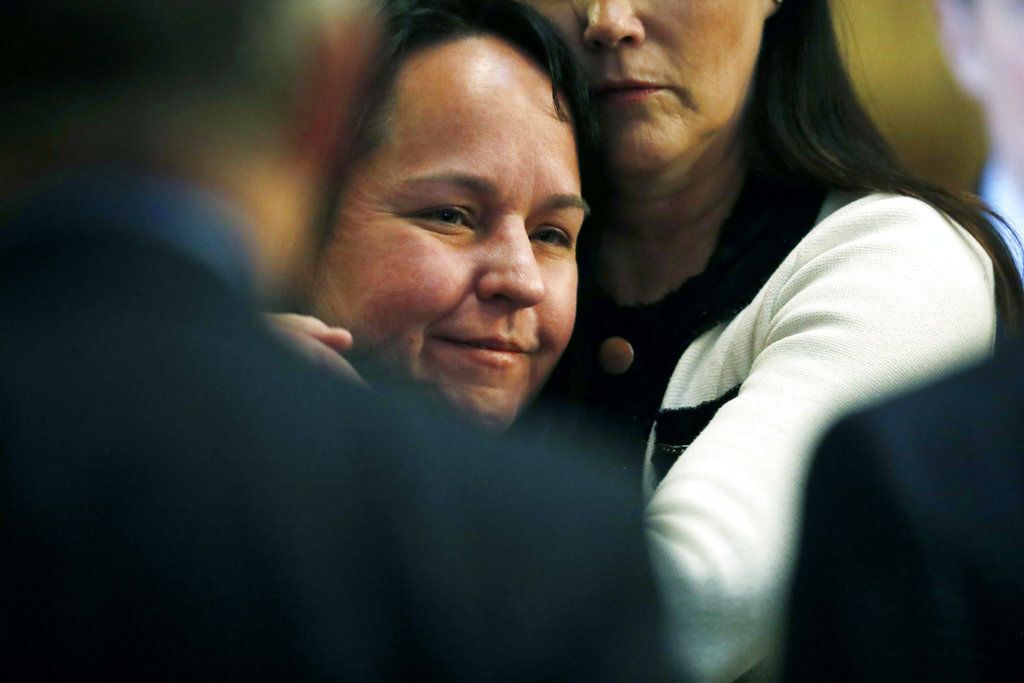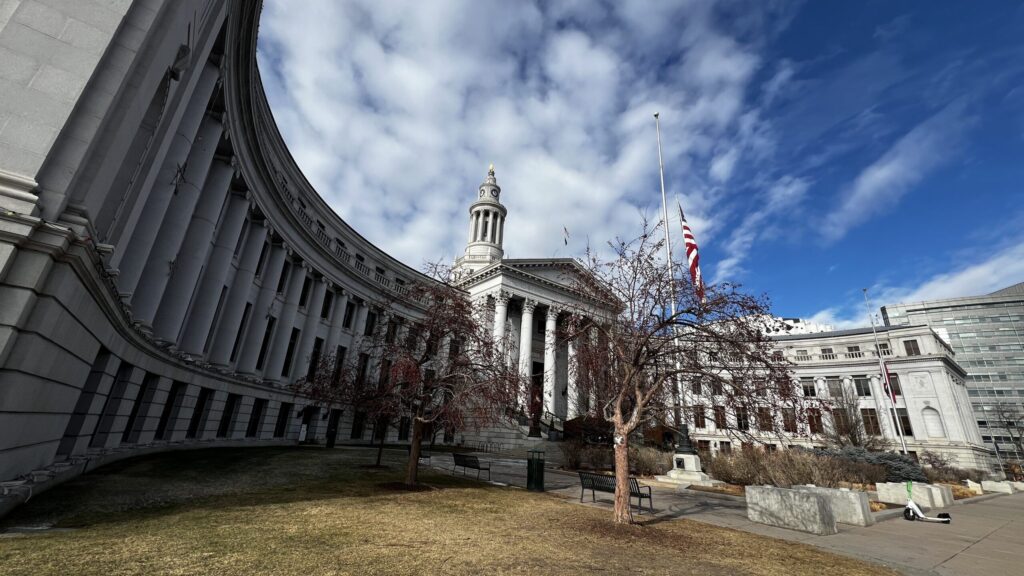Ex-staffers say Colorado’s Office of Public Guardianship is in crisis, ask Polis to replace leaders

A Colorado office tasked with taking care of some of the state’s most vulnerable citizens is once more facing questions about its management, notably after resignations have left it with just a few staffers to care for more than 80 clients.
The Office of Public Guardianship is down to two remote guardians, who may live four to six hours away from their wards and who aren’t tasked with in-person visits, and it has no in-person guardian for its Denver-based district, Colorado Politics has learned.
The remote guardians are responsible for the office’s 82 clients, who are primarily based in mental health facilities in Denver and Pueblo.
“We can no longer sit back and watch this office be set up to fail,” seven former guardians who have resigned in the past year wrote Gov. Jared Polis earlier this month.
In their letter to the governor, the former staffers described an inefficiently managed office whose workers have left one after another, leaving already precarious patients in worse care. They asked Polis to replace the office’s current leaders.
Set up under legislation in 2017, the Office of Public Guardianship was intended to provide “a guardian of last resort” to individuals — usually indigent and incapacitated adults, some abandoned by families and friends, and who cannot afford a private guardian.
But the program’s initial funding failed to materialize. The authorizing legislation said it would be funded with “gifts, grants and donations,” a sign the sponsors couldn’t find the money required to get it off the ground — at that time estimated at about $1.75 million.
That changed in 2019, when the General Assembly put $835,000 into the program, half from the general fund and half from court fees.
The program first started accepting referrals in April 2020. Out of those first 86 clients, 47 were homeless when they were referred to the office, according to Sophia Alvarez, the office’s executive director.
Out of that first batch, 14 died in the program’s first eight months, a fact not disclosed by Alvarez when she testified in an legislative oversight committee hearing in January 2021. Another 12 have died since then, eight in 2022 and four last year.
The original legislation authorized the office to set up guardians in the Denver-based 2nd Judicial District and at the 7th and 16th districts, both in rural southern Colorado.
Last year, when the pilot was up for renewal or discontinuance, the General Assembly decided to authorize it indefinitely and to require the office to begin offering guardian services in the two additional districts beginning next year. Lawmakers did so despite the deaths of the state’s wards and questions about the office’s efficacy.
The current clients, about 82, range in age from 20s to 90s.
It’s unclear just how many guardians the office currently employs. Alvarez said there are four, but the website shows just two guardians with five other employees responsible for legal services and management.
The two guardians listed on the website are remote and are based in Delta (7th district) and Trinidad (16th district). Their clients are largely housed at the Colorado Mental Health Institute at Fort Logan in Denver. A few are located at the state hospital in Pueblo. Most clients, who need skilled nursing care, are assigned to the office while that transition process takes place.
That means guardians assigned to the Denver office are responsible for doing in-person visits for all 82 current clients. But the website shows the office has no guardian in the Denver office to do those visits. National guidelines suggest the guardians should meet at least once a month with their clients.
An office in ‘crisis’
Seven former guardians who have resigned in the past year — who said they were frustrated with the program’s management and particularly the program director and deputy director — took the extraordinary step of sending a letter this month to Polis, who two years ago promised more oversight of the program.
In a Feb. 5 letter obtained by Colorado Politics, seven of the ten guardians who resigned in the past year wrote that the office currently has no in-person guardians for the 2nd Judicial District.
“This office is in crisis and is not sustainable in its current condition!” they wrote, requesting an immediate state audit to “ensure proper resources and a change in leadership so that clients get the care and advocacy they deserve.”
They said they brought those concerns to the Office of Public Guardianship commission, but that their complaints were ignored.
Colorado Politics sent an email request to the six current members of the commission, asking for a response to the letter.
Not one person responded.
Angelina Gonzales has 15 years’ experience as a social worker and manager and worked for OPG for six months in 2023.
Three of the seven signatories to the letter were part of the original group of guardians hired in 2020.
Gonzales said she watched as one guardian after another resigned, which shifted that person’s clients to another guardian. That shifting of clients happened continuously, she told Colorado Politics.
That meant medically or mentally-fragile clients were assigned new guardians who had to start over with building trust — only to see that guardian leave and a new one assigned yet again.
The result was that guardians were overwhelmed and clients’ care suffered, she said.
“I stuck around long enough to see why (guardians) were leaving,” Gonzales said.
And after the others left, Gonzales wound up being the last guardian doing in-person visits.
“The systems are not working,” she said.
The turnover rate made it hard to build that collaboration of care with clients or with the remote guardians.
Micromanagement
Part of the problem, Gonzales alleged, is micromanagement by Alvarez and her deputy director, Janelle Cantu.
Gonzales blamed that “micromanagement” for the lack of trust and delays in care. It interfered with a guardian’s ability to get a client relocated from a mental health facility to a skilled nursing home, she said. Alvarez and Cantu insisted on reviewing everything, including legal documents, benefits and finances, and that added more delays, Gonzales said.
The lack of guardians meant Gonzales was traveling all the time to meet with clients, she said. The problems did not go unnoticed by the community partners they worked with, which caused the office’s reputation to suffer, Gonzales also claimed.
Criticism against the office is far from new.
At the end of its first year of operations, Denver Health sharply criticized the Office of Public Guardianship for a variety of problems, including a fight between an OPG guardian and a client that resulted in the guardian being ordered out of the hospital. In another instance, a client died at Denver Health, and when notified, the guardian conceded no responsibility for that deceased client.
“Sometimes, I felt my hands were tied in making decisions for the wards,” Gonzales said, claiming she constantly had to run decisions past Alvarez or Cantu.
“We’re very familiar with the population,” she said.
Guardians have backgrounds as social workers or have worked for human services in the past, and most have extensive experience in dealing with people with mental health issues, she said, adding, “It made it hard to do my job in the best interest of the wards.”
The systems are setting up staff members to fail, Gonzales said, adding, “It puts the patients and wards at risk” and it means patients are falling through the cracks.
“The biggest concern we have is the disservice to these clients. Some of these people have sat at Fort Logan or Pueblo for years,” she said. “Who’s going to take oversight over OPG and its failings? It’s not a coincidence anymore that staff members are resigning.”
Gonzales said Alvarez and Cantu are actually “good” when it came to the job of guardianship itself but not when it comes to leadership and management.
The letter to the governor’s office got only a form response from Polis’ office.
The former guardians have heard nothing since then.
Through a spokesperson, Polis told Colorado Politics that “although the Office of Public Guardianship is an independent office and housed in the Judicial Department, the Governor’s Office agrees that more must be done to ensure this office can support Coloradans.”
“That’s why we took action in partnership with the legislature to rework the Office of Public Guardianship Board of Directors, putting the necessary infrastructure in place to increase programmatic and fiscal oversight with the bipartisan Senate Bill 23-064,” the spokesperson said. “The Governor’s Office also worked with the bill sponsors to add language requiring an audit be completed between 2027 and 2030.”
The governor’s office did not respond to questions about the letter or the staffing crisis.
Alvarez did not attend the oversight committee hearings reserved for the judicial department in January. She had made presentations on OPG every January between 2021 and 2023.
She did not respond to questions about the letter or why she didn’t attend oversight hearings, instead saying that state law only requires the office to do an annual report.
That doesn’t appear to be happening, either.
The last annual report to the General Assembly was for 2022, as listed on the program’s website.
State Rep. Meg Froelich, D-Greenwood Village, who observed the office since its earliest days, told Colorado Politics the office deals with the state’s most fragile people and the challenge from the beginning was that the office be well staffed with compassionate people.
She said she was troubled by the letter to the governor.
“They’re nonfunctioning,” she said. “These are real people and real lives.”
Froelich added: “I don’t think we ever saw a course correction after the first complaints surfaced.”
The reason the office got funded and continues to exist is that people recognize the huge need and the vulnerability of these people, but they need oversight, Froelich said.
Rep. Marc Snyder, D-Manitou Springs, who was among the sponsors of the 2023 legislation that provided funding to the office, said he is “very concerned there’s such troubles and so many resignations.”
“We need to get on top of this. I think there’s great value in the office of public guardianship, but it needs to be done right, and apparently it’s not,” he told Colorado Politics.













